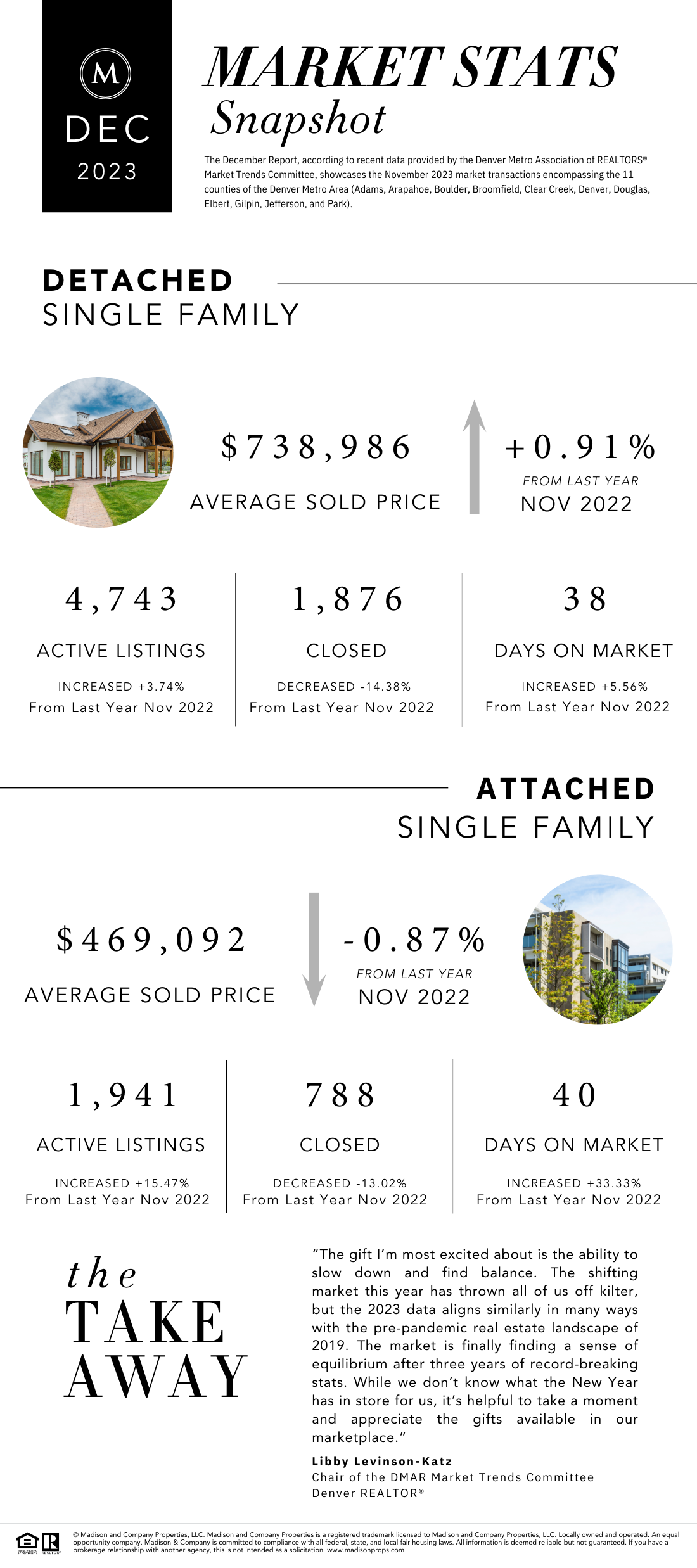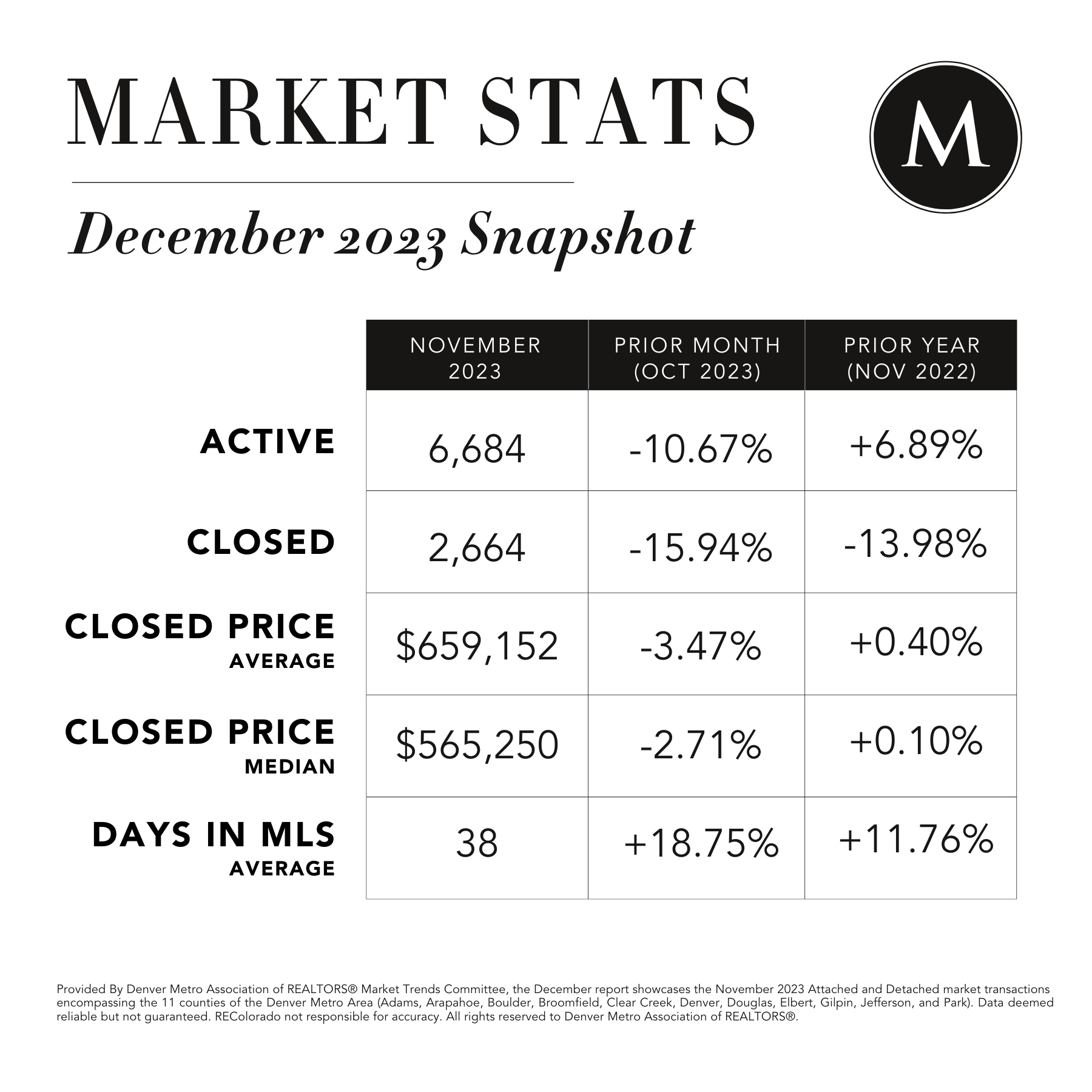 You want to sell your house, right? And you’d like to do that quickly and for the most money possible, right? Here in Denver, where there is very low inventory and buyers compete for properties, our hot market won’t be kind to a seller who doesn’t have his act together. Buyers are savvy, patient, and will pay for what they find value in but they won’t plunk down their life savings for just any old thing. Avoid the following mistakes and you’re on the way to the next chapter of your life.
You want to sell your house, right? And you’d like to do that quickly and for the most money possible, right? Here in Denver, where there is very low inventory and buyers compete for properties, our hot market won’t be kind to a seller who doesn’t have his act together. Buyers are savvy, patient, and will pay for what they find value in but they won’t plunk down their life savings for just any old thing. Avoid the following mistakes and you’re on the way to the next chapter of your life.
1. Clutter, Grime, and Odors. DEAL WITH IT.
Living in our homes, we get used to things and we like them that way. All the family photos and bowling trophies may be family treasures but to a buyer trying to imagine themselves at home, too much information is a turn-off. This includes the way your house smells and how clean it is. And I mean deep clean. If you’re already overwhelmed by the thought of moving, it’s worth it to hire someone to come in and clean. Corners, cupboards, ovens, showers, grout, even windowsills are sometimes neglected in our daily routine. We have what I call an ‘acceptable level of mess’, which is different for each of us. If a very qualified buyer, Miss White Glove, falls in love with your kitchen but is repulsed by the grease under the vent hood, she’ll do one of two things: get over it, or get on to the next showing. Buyers can overlook if your home isn’t “Pottery Barn Perfect” or you have some minor (or major) renovations, they may even feel drawn to take those on. But there’s no reason it can’t be clean.
2. Seller is Home During Showings. TAKE A HIKE.
I know you’re busy and these showings are putting a cramp in your style. Plan for this and treat yourself to some time off. Go to the movies, spend the day with friends or head up to the mountains for a hike (or a weekend). It is inconvenient, keeping the house clean, doing laundry at midnight and emptying the cat box twice a day, but you’ve got to give yourself the best opportunity to sell. Tempting as it is to stay and chat with potential buyers about the many wonderful features of your home, it is not a good idea. Your buyer needs the time and space to fall in love with your home and that won’t happen with you lurking around. If you happen to run into one another, smile and make a quiet, hasty retreat. Let the real estate agent show your home and don’t answer any questions. The Colorado listing agreement states that all negotiation shall be done through the agent and there’s a good reason for this. Oversharing can weaken your bargaining power. So zip it, flip the lights on, put the toilet seats down and take a stroll.
3. Failing to Complete Disclosures. CAVEAT EMPTOR, BABY!
Being upfront about any issues with your home will save you time, money and face. You may not want to mention the time the firetrucks showed up or the time you flooded the basement by running the bath while vacuuming, but if you don’t… Mrs. Kravitz will. Disclosures provide security for both the buyer and seller; both want to feel good about the deal. If you don’t disclose information, chances are it will come up on the Inspection Report, breaking trust between parties and tainting the transaction. There’s nothing worse than having the buyer’s agent call me about an issue that should have been disclosed or having a buyer call me after closing to tell me what the neighbor said about her new dream house. Lack of disclosure plants doubt in the buyer’s minds and complicates negotiations if they feel they’re not being dealt with fairly. Better to just lay your cards on the table from the start.
4. Refusing to Negotiate. MAKE THEM AN OFFER THEY CAN’T REFUSE
The real estate transaction is complex. It is both a business deal and a human transaction; emotional, potentially stressful, full of moving parts. A great Realtor should not only be adept at negotiating; it should be her strong suit. But an agent can only do as their client directs. I advise mine to keep calm, to stay open, and understand that both parties want to feel they’ve won even if it stings a little. The price you ask and the price they offer are not as important as the one we can agree on. Negotiation doesn’t stop when you both sign the contract, it continues for the entire process. Resolving inspection issues, dates and deadlines that may need to be moved, surveys, appraisals- these may need tweaking, rarely do they need arm twisting.
5. Overpricing the Home. WHERE’S THAT OFFER I CAN’T REFUSE?
Selling a home is a business transaction (didn’t I just say that?), but a home is also an emotional commodity. Unlike a product, a hamburger for example, you cannot just slap a $20 price tag on it and call it good. Commodities markets are driven by supply and demand; your house is worth what a buyer is willing to pay for it. Though buyers and sellers have different emotional attachments to homes, they also have different financial ones. What you may attribute as valuable, your buyer may not hold sacred. Pricing a home is more art than science—data driven art. The location, home’s condition, and comparable sold properties determine current market value. Your Realtor will provide you with the data you need to determine the best price for your home to sell in the least amount of time.
6. Limiting Market Exposure. BUT WAIT, THERE’S MORE!
During the housing crisis, Realtors were working hard to sell homes as sellers waited nervously, hoping to avoid making another mortgage payment. To many sellers we weren’t working hard enough. Now that the Denver real estate market is high again, the perception is that we just slap a “For Sale” sign in the front yard, place an ad in the real estate section of the local newspaper and wait for throngs of buyers to beat a path to the door. My job is the same no matter what the market, it’s the timeline that changes. There iFulls a strategy to getting a home in front of as many buyers as possible for maximum exposure and most of that is online. Open houses, direct mail marketing, virtual tours, MLS input, agent networks and social media are some of the things real estate agents use to sell your home quickly. Given most of us have the same toolbox (and there are more), you want to make sure your agent knows how to use them and select which would be the best for your specific property. Ask questions when you interview a Realtor: who do they think is your buyer? What do they think is the best way to catch their attention? What kind of agent network and/or social media presence do they have? Are they set up for mobile platforms? How are they different from any other agent?
I’m happy to answer these questions for potential clients, it gives me a chance to show off 😉

















![June 16 - Market Snapshot [5608]](https://tracyshaffer.com/wp-content/uploads/2016/06/June-16-Market-Snapshot-5608.jpg)



